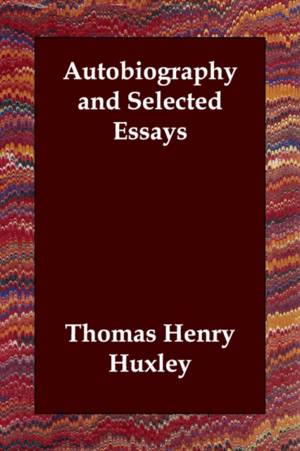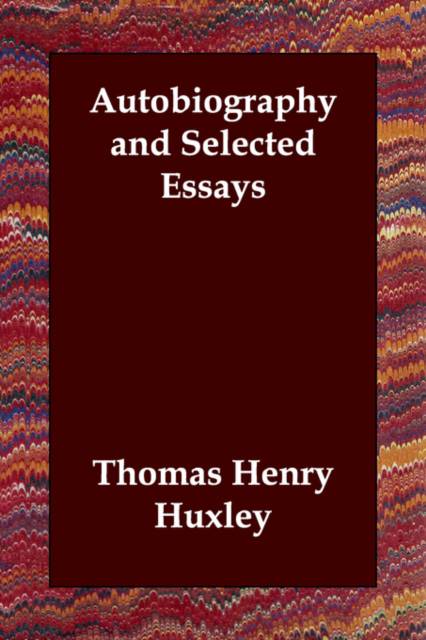
- Afhalen na 1 uur in een winkel met voorraad
- Gratis thuislevering in België vanaf € 30
- Ruim aanbod met 7 miljoen producten
- Afhalen na 1 uur in een winkel met voorraad
- Gratis thuislevering in België vanaf € 30
- Ruim aanbod met 7 miljoen producten
Zoeken
€ 9,95
+ 19 punten
Uitvoering
Omschrijving
Thomas Henry Huxley (1825-95) was an English biologist and anthropologist specializing in comparative anatomy, who was also an advocate of Darwin's theory of evolution. After leaving school at 10 with little formal teaching, he determined to educate himself, reading widely, teaching himself German and also Latin and enough Greek to read Aristotle in the original. As a young adult he made himself an expert on both invertebrates and vertebrates and, being skilled in drawing, was able to illustrate his own publications on marine invertebrates. From 13 he was apprenticed for short periods to various medical practitioners whilst continuing his programme of reading and at 16 entered Sydenham College, a cut-price anatomy school. A year later he was admitted to Charing Cross Hospital and at 20 passed his First M.B. exam at University of London but, as he did not take the final exam, did not qualify for a degree. Aged 20 he was too young to get a licence to practise from the Royal College of Surgeons so applied to the Royal Navy and was made Assistant Surgeon (though in practice marine naturalist) to HMS Rattlesnake which departed on a voyage of discovery to New Guinea and Australia on 3 December 1846. On arrival in the southern hemisphere Huxley devoted himself to the study of marine invertebrates, sending details of his discoveries back to England and one of his papers was published by the Royal Society in 1849. The value of his work was recognized and on his return in 1850 he was elected a Fellow of the Royal Society. In 1854 he became Professor of Natural History at the Royal School of Mines, holding the chair for 31 years during which time he worked on vertebrate palaeontology and many projects to advance the place of science in British life. He also held many other prestigious roles in the scientific world, and after his retirement he edited the nine volumes of his Collected Essays. This collection of essays, some of which are extracts from longer pieces, was published in 1909, edited and with an introduction by Ada L F Snell, Associate Professor of English at Mount Holyoke College.
Specificaties
Betrokkenen
- Auteur(s):
- Uitgeverij:
Inhoud
- Aantal bladzijden:
- 112
- Taal:
- Engels
Eigenschappen
- Productcode (EAN):
- 9781406800593
- Verschijningsdatum:
- 22/08/2006
- Uitvoering:
- Paperback
- Formaat:
- Trade paperback (VS)
- Afmetingen:
- 152 mm x 229 mm
- Gewicht:
- 176 g

Alleen bij Standaard Boekhandel
+ 19 punten op je klantenkaart van Standaard Boekhandel
Beoordelingen
We publiceren alleen reviews die voldoen aan de voorwaarden voor reviews. Bekijk onze voorwaarden voor reviews.







